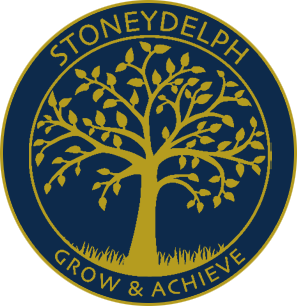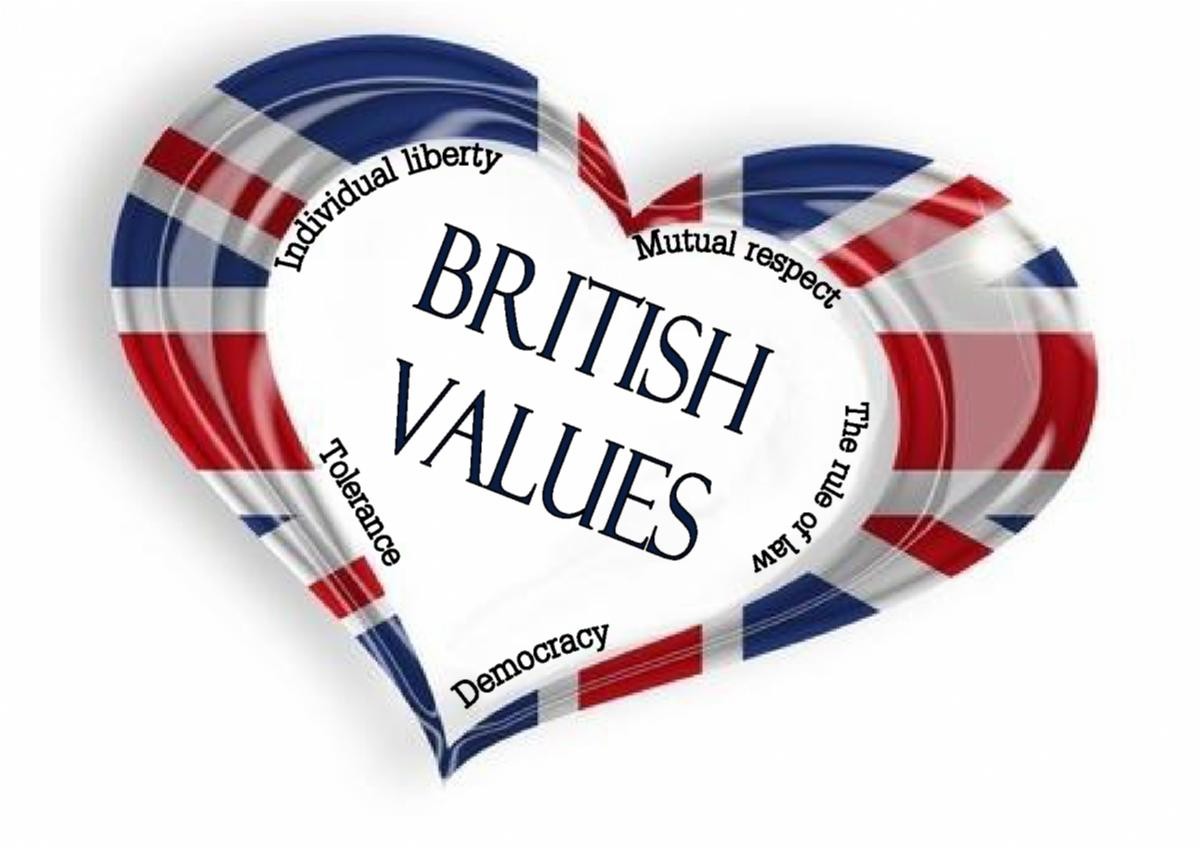British Values
The DfE have recently reinforced the need "To create and enforce a clear and rigorous expectation on all schools to promote the fundamental British values of democracy, the rule of law, individual liberty and mutual respect and tolerance of those with different faiths and beliefs."
Stoneydelph Primary School is committed to serving its community and surrounding areas. Our school ethos embeds British Values through our curriculum provision including collective worship, engagement with the Parish Council and the local community and our roles and responsibilities. It recognises the multi-cultural, multi-faith and ever-changing nature of the United Kingdom, and therefore those it serves. It also understands the vital role it has in ensuring that groups or individuals within the school are not subjected to intimidation or radicalisation by those wishing to unduly, or illegally, influence them.
Our school accepts admissions from all those entitled to an education under British law. It follows the policies outlined by the governing body regarding equal opportunities, which guarantee that there will be no discrimination against any individual or group, regardless of faith, ethnicity, gender, sexuality, political or financial status, or similar.
The Government emphasises that schools are required to ensure that key ‘British Values’ are taught in all UK schools. The government set out its definition of British values in the departmental advice entitled ‘Promoting Fundamental British Values as part of SMSC’ - DfE November 2014 which links to the ‘Prevent Duty’ - DfE June 2015 that requires all schools to have "due regard to the need to prevent people from being drawn into terrorism".
The fundamental British Values that schools should have regard to are those of:
- Democracy
- The rule of law
- Individual liberty
- Mutual respect
- Tolerance of those of different faiths and beliefs
At Stoneydeloph Primary School these values are reinforced regularly and in the following ways:
Democracy
Democracy is widespread across our school. Pupils are active participants in the life of the school through a variety of roles such as house captains, litter team, the librarians and the school council.
Pupils have the opportunity to have their voices heard through our School Council who meet regularly. Every child on the School Council is voted in by their class and has the opportunity to put forward their views and opinions at the meetings.
Pupil voice, within the curriculum planning sequence, provides the opportunity for children to share their views and contribute to class. The school also uses pupil questionnaires to canvas opinion and evaluate its provision.
The schools values and code of conduct are promoted daily and regularly the focus of our assemblies. The Behaviour and Relationships Policy involves rewards and was constructed with the support of the School Council.
Individual Liberty
Pupils are actively encouraged to make the right choices, following our school values. At Stoneydelph Primary School we educate and provide boundaries to support children to make wise choices, through a provision of a safe environment and empowering education.
Pupils are encouraged to know, understand and exercise their rights and personal freedoms and are advised how to exercise these safely, for example through our Online-Safety and PSHE lessons.
They are encouraged to take on areas of responsibly and leadership for example Play leaders, Buddies, Pet Team and Litter Team.
The Rule of Law
The importance of laws are consistently reinforced at Stoneydelph Primary School. The Behaviour and Relationships Policy, underpinned by the schools values, is consistently applied by all staff and referred to within assemblies.
Discussions take place to ensure that all pupils understand the value of and reasons behind laws. They understand that laws they govern and protect us, the responsibilities that this involves and the consequences when laws are broken. Visits from authorities such as the Police and Fire Service help to reinforce this message.
Mutual Respect
Through discussions both in class and assemblies children develop social, moral, spiritual and cultural values, showing respect and an understanding of the lifestyles of others and the diversity of the world. Through these discussions they develop the understanding of what this means and more importantly how they can show it. Displays around the school promote our school values and this is reiterated through our classroom rules, as well as our Behaviour and Relationships policy.
The schools values are not only expected in school but also to be demonstrated when the children are off site. An example of this is when our children participate in sporting events or team games against local schools which are regularly attended. All children are taught to show good sportsmanship whether they win, lose or draw.
Tolerance of different faiths and beliefs
At Stoneydelph we understand the importance of actively promoting diversity through our teaching and celebration of different faiths and cultures. Assemblies and discussions involving prejudices and prejudice-based bullying have been held and are supported by learning throughout the curriculum and especially in RE and PSHE (Jigsaw).
Additional to the key areas above we also promote British Values by
- Providing children with opportunities for enterprise e.g. Year 6 enterprise week
- Fundraising for and supporting charities which are important to us e.g. Children in Need, Poppy Appeal
- Learning about the countries which make up Great Britain and the United Kingdom, through its geography, governance, flags, symbolism and culture
- Researching monarchy succession and key events
- Accepting responsibility for our planet through sustainable global education
- Learn about Britain within its role in Europe and the wider world and social responsibility
- Valuing the cultural aspects of ‘Britishness’ through our appreciation of the sports and the arts
- Engage with stories of national and local concern in the media through regular Newsround time
- Host school events linking to national events, e.g. Street Parties
- Learn about inspiring Britons in history and collective worship
- Acknowledging that these British Values are not unique to Britain and can be found as integral values throughout the world, throughout a range of religions and a variety of cultures

